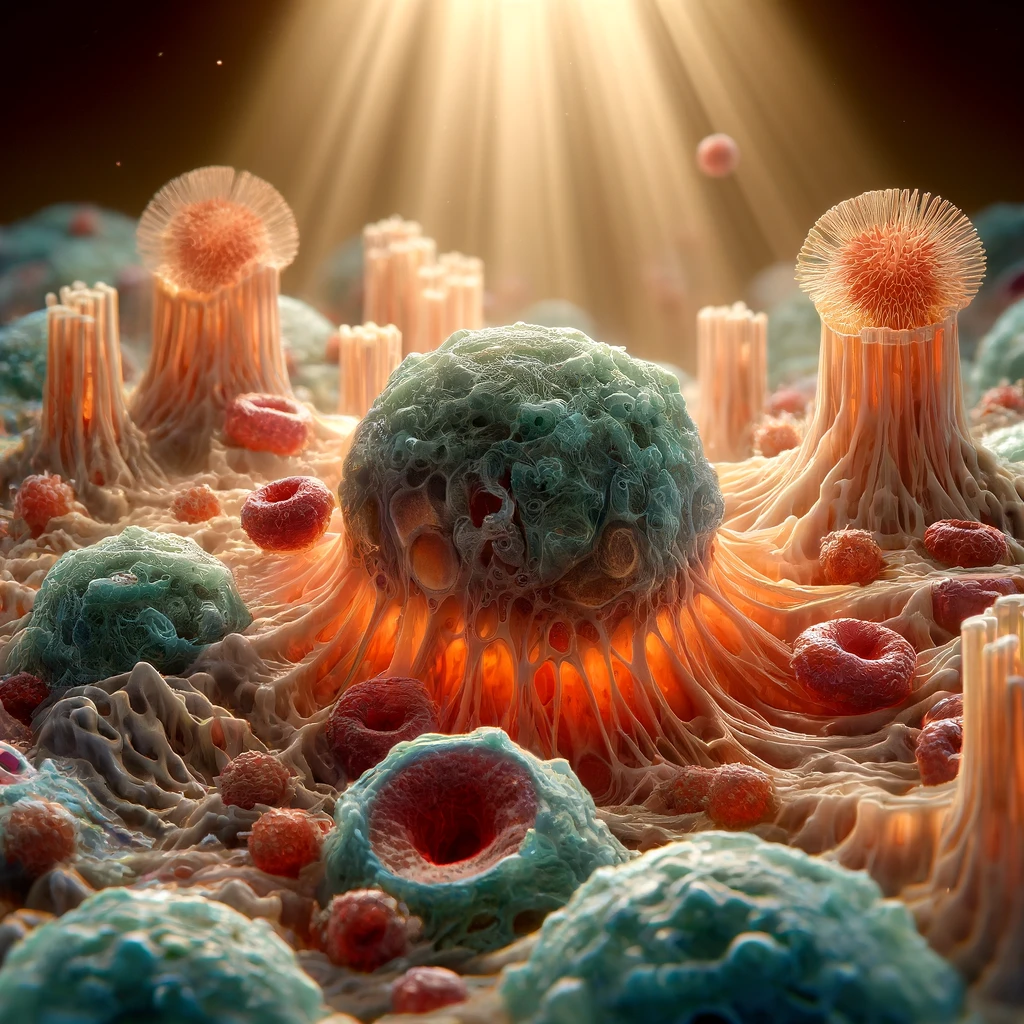
About
Stromal cells are connective tissue cells found in all our organs. In lymphoid organs such as lymph nodes, they provide a migratory and feeding platform for leukocytes. In non-lymphoid organs, they are best known for supporting the function of parenchymal cells. However, considerable evidence suggests that stromal cells also control the homeostasis of tissue-resident immune cells, such as macrophages.
Our laboratory studies the immunoregulatory functions of stromal cells in lymphoid organs and the dialogue between stromal cells and macrophages in non-lymphoid organs.
Projects
Our health depends on a delicate balance between immune defense against pathogens and tolerance to […]


Project: UNFIRE Other participants: Ciphe (Ana Zarubica), Hospices Civils de Lyon and CIRI (Sophie Trouillet-Assant, Thierry Walzer), CoVir team […]





Project: ICARO Current acellular vaccines are mostly effective against extracellular pathogens, but fail to induce a response […]


Project: Myfunbat The project aims to define the diversity and functions of brown adipose tissue (BAT) macrophages, […]

Project: EndoPos The EndoPos project explores the role of the GDPD2 enzyme, produced in particular by pulp fibroblasts […]

Project: Path Finder This project aims to characterize the spatio-temporal development of type I dendritic cells (cDC1) in […]

Project: T-MAC The T-MAC project aims to understand how testicular macrophages and their niches contribute to the maintenance of […]

Project: NICHE The NICHE project explores the concept that macrophages (Macs) depend on local niches formed by […]

Project: HOMEOSTASIS HOMEOSTASIS explores how host–commensal interactions preserve tissue equilibrium. Using a model of long-term, inflammation-free oral colonization by […]

Project: CARCINOMAC Head and neck cancers are the sixth most common type of cancer. Among these, the Oral Squamous […]

The ocular surface is protected by a multi-layered tear film, with the lipid layer produced by Meibomian glands (MGs) playing […]





